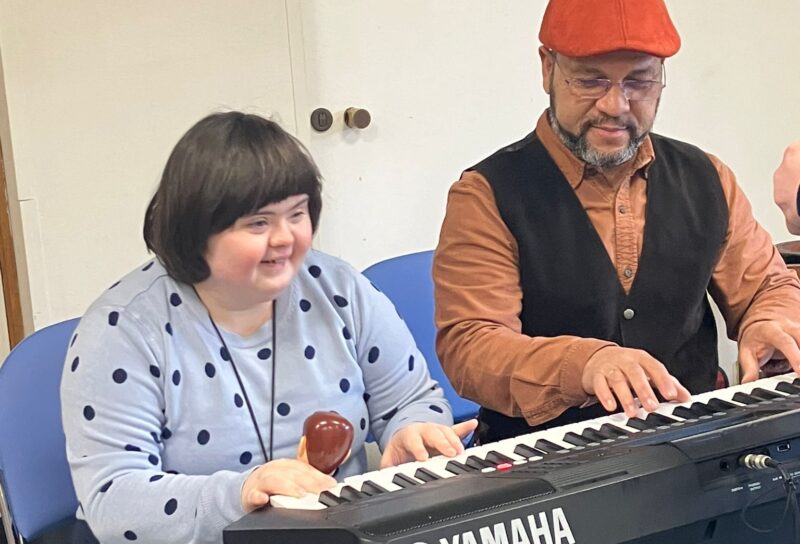Home > Hub article > 24 hour Curriculum – or Waking Day Curriculum
24 hour Curriculum – or Waking Day Curriculum
Created: 27/06/2023, Bright Futures @Ruils
Who by? Parent
Why might it be of interest?
Local authorities are notoriously reluctant to agree to residential placements except in very specific circumstances. The LA will always want to look at how a young person’s needs can be met locally as residential colleges are expensive.
A residential college will generally only be agreed if there is no way a young person’s needs can be met locally. There will be many scenarios where this is true including a lack of a suitable course. The continuity that a 24 hour curriculum / waking day curriculum is another reason why a residential placement is preferable. If this applies to your young person then you need to understand what these terms mean and how they are relevant to your young person.
How does a 24 hour curriculum differ from overnight respite/short breaks and domiciliary care?
A 24 hour curriculum appreciates that learning is both an educational need and a social need. It allows continuous learning that is consistent, from staff who are fully conversant with the young person in both a structured classroom/workshop setting and the less structured evening / leisure setting. This is of particular benefit to those on the autistic spectrum who have difficulty empathizing with others and understanding what is an appropriate or inappropriate response to everyday situations and who may find transitions difficult. It can be as equally of benefit to young people with learning disabilities and other disabilities.
Because of the continuity and consistency it allows for gaps in understanding and areas for development in the young person to be identified and cross referenced and worked on in a cohesive way with day and evening staff working collaboratively on the same goals and aims.
It teaches the young person to learn how to live with their peers throughout a 24 hour period, how to get on with the same people in very different settings and that what may be appropriate in one place becomes deeply inappropriate in another, with exactly the same person. This is a particularly difficult concept for someone on the autistic spectrum but also for young people with learning disabilities and other disabilities. It also allows the young person to get feedback from their peers over the course of the week and during the day. Peer comment is as vital as tutor comment but tends to trickle out at a much slower rate. This is something that is important for a young person as while they may benefit from having siblings they may be older, no longer living at home or otherwise unable to be much involved and accessing social situations outside of the home can be difficult for them and as such limits the time they spend in less structured settings with peers.
A young person may find becoming confident and secure in their daytime school/college setting easier to achieve because of the structure and routine and it is this confidence in that setting that will lead to less resistance / reluctance to staying overnight and if this is to be successful it has to be with full compliance. It also means that staff can quickly identify what behaviours are already known and recognised from daytime school and what might be an expression of distress at being away from home rather than dismissed as poor behaviour. It can be talked about with people they already know and trust and, as importantly, know them.
Spending time at a residential college can, quite naturally, lead to supported living and the time spent at residential college may be key in leading to success in a supported living arrangement. The college years in a residential college go beyond the school day learning and help a young person acclimatize and prepare for the time when they will be living away from the family in some sort of supported living community with others.
The young person’s degree of learning disability, autistic traits and / or other disabilities may mean that they take longer than their (disabled) peers to understand their world and adjust to new things. Changes from one environment to another, which also involve changes of people supporting them, may at best difficult for them and at worst cause them to close down and cease all interactions. Continuity and consistency of environment and people working with the young person are essential to optimise their learning and confidence. This can only be achieved by the people working with them in the evening / night having full knowledge and access to what is taking place during the day, and vice versa.
This level of cohesion and consistency can only be achieved if there is regular and consistent liaising between day and evening / night staff and if staff are knowledgeable about all the students and don’t just have a personal assistant’s role for one student which can result in the student feeling both isolated and increasingly dependent on their “carer”, thereby resulting in an actual loss of independence rather than the desired goal of increasing independence skills.
Where this level of cohesion and consistency is considered necessary for a young person to move towards living independently (whatever that means to them) there is no real alternative to a residential college. With the best will in the world a local day college cannot achieve this level of close working with the young person’s home, whether that be the family home or already supported living.
Categories: College Information, Education & Employment
